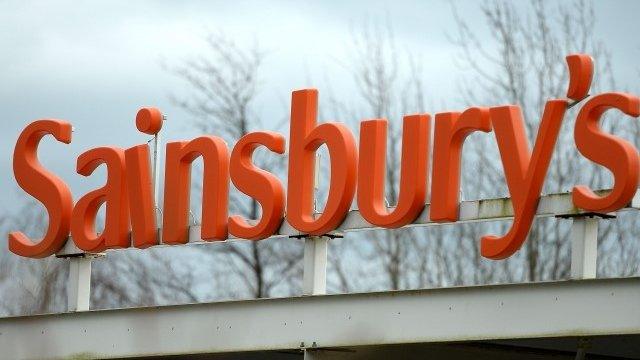Morrisons supermarket chief Dalton Philips steps down
- Published
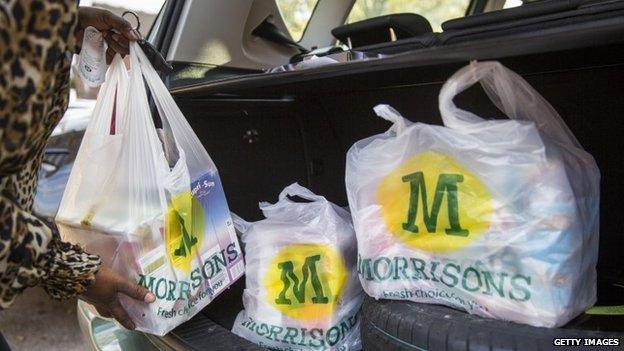
Morrisons chief executive Dalton Philips is to leave the troubled supermarket after five years in charge.
The firm said the search had begun for a replacement and Mr Philips would stay until the year-end results in March.
Andrew Higginson, the chairman-elect, said:, external "We need to return the business to growth. The board believes this is best done under new leadership."
Separately, Morrisons said like-for-like sales excluding fuel, external in the six weeks to 4 January fell 3.1%.
The supermarket also said it would be closing 10 loss-making stores during 2015.
Shares in Morrisons jumped at the start of trading and closed 4.5% higher on the day.
Mr Philips was under pressure for Morrisons' poor trading performance, in particular for delays in moving into the convenience store sector and setting up an online operation.
Last September, chairman Sir Ian Gibson acknowledged that trading conditions were tough and that the whole industry was experiencing "unprecedented change".
Morrisons is being squeezed between the higher end of the market and the discount supermarkets chains.
This squeeze was underlined on Tuesday with latest figures from Kantar Worldpanel. The data showed that Waitrose, Aldi and Lidl increased market share in the 12 weeks to 4 January, while Morrisons, Tesco, Asda and Sainsbury's all lost ground.

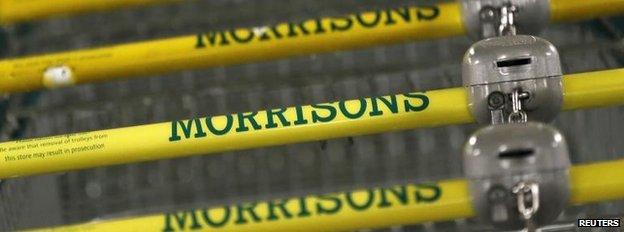
Analysis: Kamal Ahmed, BBC business editor
The surprise demise of Dalton Philips as chief executive of Morrisons is further evidence that supermarket boards have had enough of "steady as she goes".
The supermarket chain's figures this morning actually show some progress in arresting sales decline but that no longer appears enough for retailers watching nervously as discounters eat into their profit margins.
Mr Philips has been the first victim of what might be called the "Dave Lewis effect".
The new chief executive of Tesco showed that with some simple, customer focused changes sales numbers can be boosted. Tesco surprised the market last week when it announced better Christmas figures than expected. If fuel is included, like-for-like sales actually turned positive.
Against that, Morrisons' figures look less than rosy.
New brooms are now in vogue. Andrew Higginson, the new chairman of Morrisons and former finance director of Tesco, clearly wants someone at the top who isn't weighed down with any historic baggage.

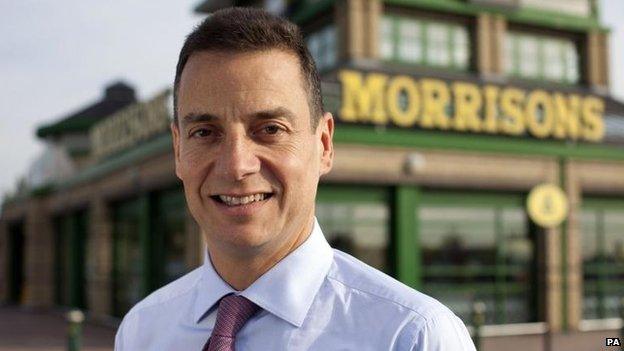
Mr Philips said he had been "proud" to work for the company
'No job'
Mr Philips said in a statement that he had been "proud" to work at the company. "Over the last five years, we have made many improvements to the business and given Morrisons strong foundations for the future."
Mr Philips will remain at the company until Morrisons reports its annual profits figures in March. The executive said in a conference call with journalists. "I don't have another job to go to. My wife has given me a long list of chores to do."
Morrisons also said Mr Higginson, a former Tesco finance director, would succeed Mr Gibson as chairman on 22 January.
The Bradford-based company's Christmas trading figures were slightly better than analysts' forecasts, which had been predicting a fall of about 3.8%.
However, the numbers still compare unfavourably with Morrisons' bigger rivals.
Last week, Sainsbury's warned that the outlook for 2015 would "remain challenging". The comments came after the supermarket reported a 1.7% drop in like-for-like sales over the Christmas trading period.
And Tesco said its sales over the holiday period were down just 0.3%.
Rise of discounters
The competitive challenge facing the big four supermarkets was reinforced in the Kantar data.
Among the big chains, Sainsbury's market share held up best, falling 0.7% to 16.9%. Tesco fell 1.2% to 29.1%, while Asda's market share was down 1.6% to 16.8%. Morrisons' was also down 1.6%, to 11.3%.
Aldi and Lidl have grown by 22.6% and 15.1% to finish the year with market shares of 4.8% and 3.5% respectively. More than half of all British households visited at least one of the two retailers over the past 12 weeks.
Waitrose also maintained its strong run as sales rose 6.6% to take its market share to 5.1%.
Fraser McKevitt, head of retail and consumer insight at Kantar Worldpanel, said: "Shoppers chose to buy a little bit more this Christmas compared with last year, a trend which has pushed sales growth up to 0.6%.
"This is low in historical terms, but a rally for the supermarkets compared with recent months."
- Published8 January 2015
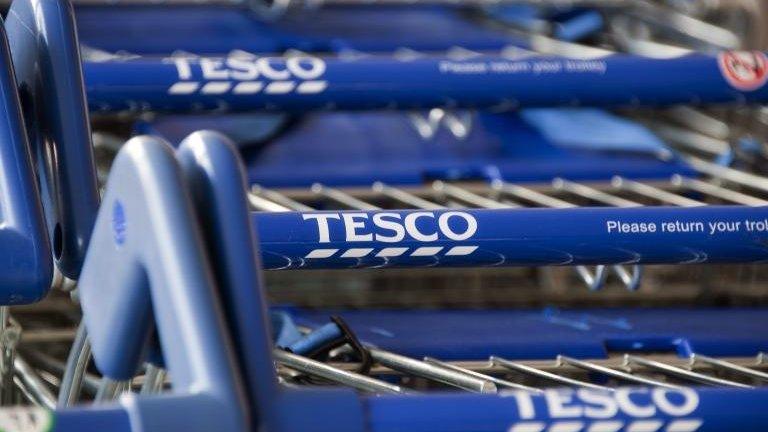
- Published7 January 2015
